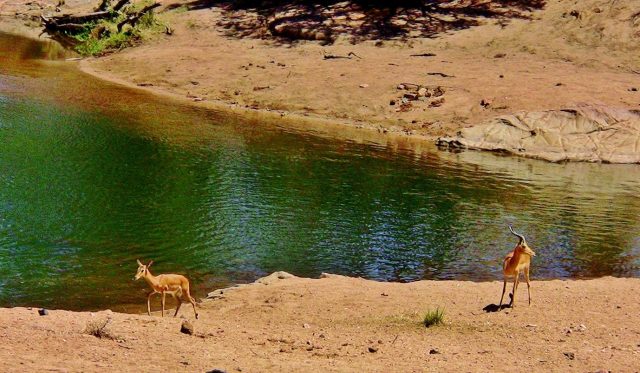In the heart of Africa, where the golden savannas stretch endlessly and the dense rainforests hum with life, a delicate balance exists between nature and human curiosity. Here, the allure of wildlife tourism beckons adventurers from across the globe, promising encounters with majestic elephants, stealthy leopards, and vibrant birdlife. Yet, beneath the surface of this enchanting world lies a complex ethical landscape. As travelers set out on their quests for awe-inspiring experiences, questions emerge about the impact of their presence on the very ecosystems they seek to admire. This article delves into the ethics of wildlife tourism in Africa, exploring the fine line between admiration and exploitation, conservation and commodification, and how both travelers and hosts can navigate this intricate terrain responsibly.
Balancing Conservation and Commerce in African Wildlife Tourism
In the delicate dance between preserving Africa’s rich biodiversity and fueling its economic engines, wildlife tourism stands at a pivotal crossroads. The allure of Africa’s majestic landscapes and diverse fauna attracts millions, promising both economic growth and potential ecological harm. To navigate this terrain, it is crucial to implement strategies that align conservation efforts with commercial interests. Key considerations include:
- Community Involvement: Ensuring that local communities benefit directly from tourism can foster stewardship of natural resources. This can be achieved through revenue-sharing models and employment opportunities in tourism sectors.
- Eco-friendly Practices: Promoting sustainable tourism practices such as limited visitor numbers, eco-lodges, and green safaris can minimize environmental footprints.
- Education and Awareness: Raising awareness among tourists about the impact of their activities encourages more responsible behavior and a deeper appreciation for conservation efforts.
By weaving together the threads of conservation and commerce, African wildlife tourism can flourish, ensuring both the protection of its natural treasures and the prosperity of its people.

Cultural Sensitivity and Community Engagement in Wildlife Experiences
Engaging with local communities is crucial for fostering a more ethical approach to wildlife tourism in Africa. Cultural sensitivity plays a pivotal role in this process, as it ensures that tourism practices are respectful and considerate of the traditions and values of indigenous populations. By actively involving local communities in decision-making and management of wildlife experiences, tourism operators can create a more sustainable and mutually beneficial model. This can include:
- Empowering local guides who possess deep knowledge of both the wildlife and cultural heritage.
- Incorporating traditional ecological knowledge into conservation efforts.
- Offering cultural exchange programs that highlight local customs and traditions.
Community engagement not only enhances the authenticity of wildlife experiences but also ensures that economic benefits are equitably distributed. This approach helps to build trust and collaboration between tourists and host communities, fostering a sense of shared responsibility for conservation efforts. By prioritizing community involvement, wildlife tourism can serve as a powerful tool for both cultural preservation and environmental stewardship, ultimately leading to more ethical and enriching experiences for all involved.

Addressing the Challenges of Wildlife Habitat Disturbance
Wildlife tourism in Africa, while offering incredible opportunities for education and conservation, also presents significant challenges to the natural habitats of the animals it seeks to celebrate. As the number of tourists increases, so does the strain on these delicate ecosystems. To address these challenges, it’s crucial to consider both the ecological and ethical implications of our interactions with wildlife. Here are some strategies that can help mitigate habitat disturbance:
- Regulated Tourist Access: Implementing strict guidelines and limits on the number of visitors in sensitive areas can help reduce the negative impact on habitats.
- Education and Awareness: Educating tourists about the importance of preserving natural habitats encourages more responsible behavior.
- Support for Local Conservation Efforts: Directing a portion of tourism revenue towards conservation projects ensures that local communities and wildlife both benefit.
- Eco-friendly Accommodations: Promoting and developing lodgings that adhere to environmentally friendly practices can significantly lessen the ecological footprint of tourism.
These measures not only protect the environment but also ensure that future generations can enjoy and learn from Africa’s incredible wildlife. Balancing tourism with conservation is not just a necessity but a responsibility that requires the commitment of all stakeholders involved.

Crafting Responsible Wildlife Tourism Policies and Practices
In the heart of Africa, where the breathtaking landscapes teem with diverse wildlife, the imperative for ethical tourism policies becomes ever more crucial. At the core of these policies lies a commitment to sustainability, community engagement, and wildlife conservation. Establishing responsible tourism practices involves a delicate balance of interests that respects both the natural habitats and the local communities who share their homes with these majestic creatures.
Key elements to consider when crafting these policies include:
- Conservation-first Approach: Ensuring that wildlife conservation is prioritized over commercial interests, with measures in place to prevent habitat destruction and poaching.
- Community Involvement: Engaging local communities in tourism planning and operations, providing them with economic benefits and ensuring their cultural values are respected.
- Regulated Interactions: Establishing clear guidelines for tourist interactions with wildlife to prevent stress and harm to animals.
- Educational Initiatives: Promoting awareness among tourists about the ecological and cultural significance of wildlife, fostering a deeper understanding and respect for the environment.
By integrating these principles into the fabric of wildlife tourism, Africa can offer enriching experiences that not only captivate the imagination but also contribute to the preservation of its invaluable natural heritage.
Future Outlook
As the African sun dips below the horizon, casting its golden hues over the sprawling savannah, we find ourselves at a crossroads in the narrative of wildlife tourism. This enchanting continent, with its tapestry of life, invites us to explore its wonders, yet also implores us to tread lightly. The ethics of wildlife tourism in Africa are not merely a footnote in the annals of travel, but a call to action for every explorer, dreamer, and guardian of the wild.
In this delicate dance between admiration and intrusion, our choices today will echo into the future. By embracing responsible practices and fostering genuine connections with local communities, we can ensure that our journeys contribute to the preservation of these majestic landscapes and their inhabitants. As stewards of both culture and conservation, let us embark on this voyage with mindfulness, ensuring that the stories we leave behind are ones of respect, harmony, and enduring beauty.
Thus, as we conclude our exploration of this complex terrain, we are reminded that the true essence of wildlife tourism lies not in the footprints we leave, but in the legacy of care and understanding we cultivate for generations to come.


































